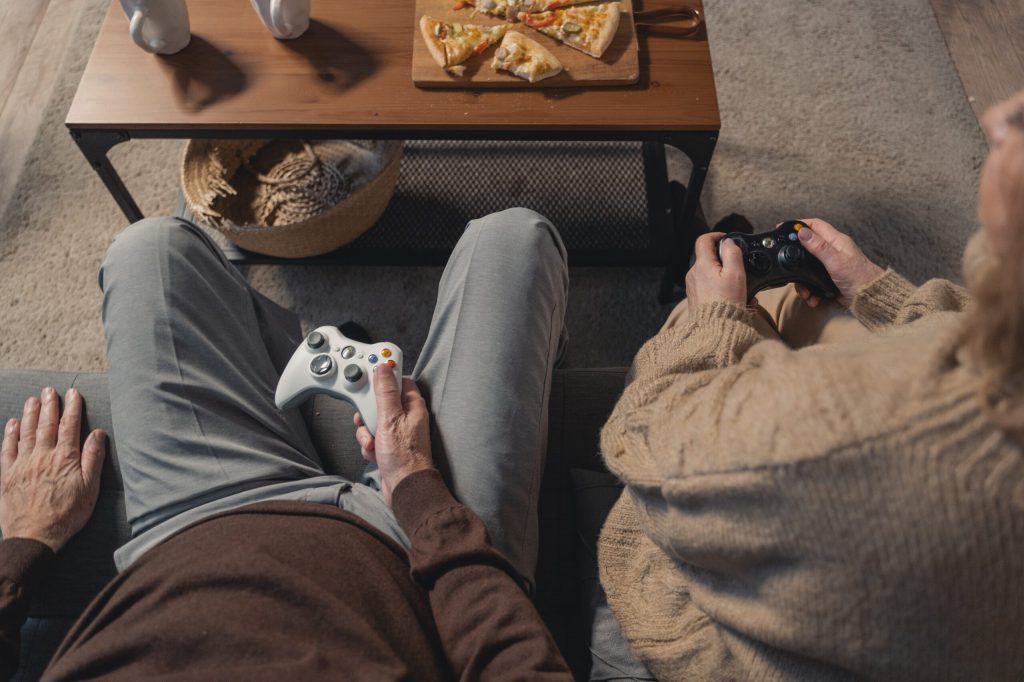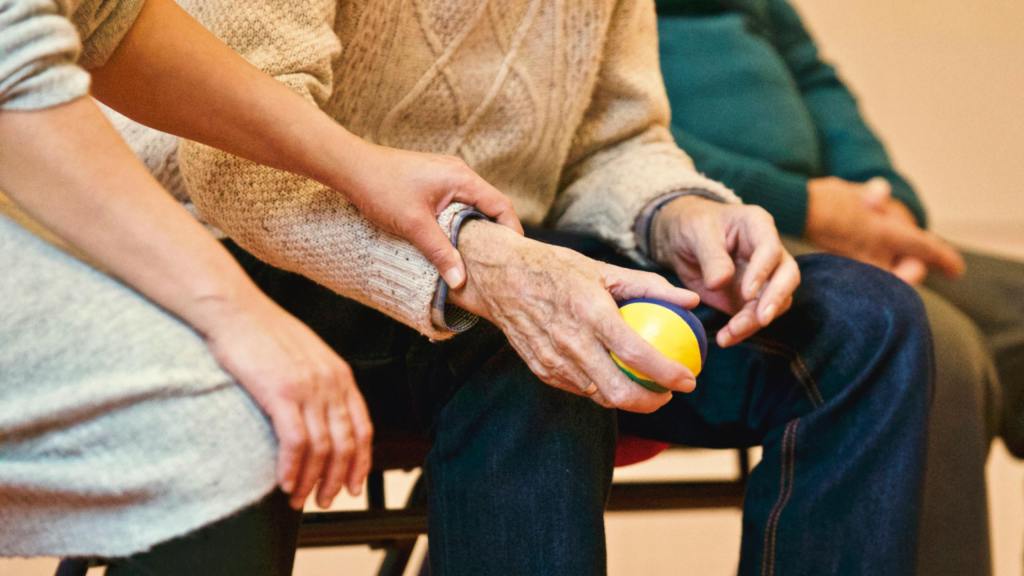
7 Engaging Recreational Therapy Activities for Older Adults To Do At Home
The American Therapeutic Recreation Association (ATRA) defines recreational therapy as “a systematic process that utilizes recreation and other activity-based interventions to address the assessed needs of individuals with illnesses and/or disabling conditions, as a means to psychological and physical health, recovery and well-being.” Simply put, recreational therapists help patients to participate in recreational activities they enjoy. This has been shown to reduce depression, increase cognitive skills, and improve social interaction.
1. Animal Therapy
For seniors at a point in their lives where they feel especially lonely or have trouble bonding with others, animal therapy can be extremely helpful. There’s a reason why animals, especially dogs and cats, are found in so many homes across the world and throughout history. Developing a relationship with a pet is a universally rewarding experience. Simply spending time with animals can help reduce depression and decrease stress.2. Video Games
Video games are an easy and engaging way to unwind. Aside from being a fun recreational activity, they provide opportunities for more social interaction and help to improve focus. For older adults, game systems that operate with an interactive remote control, such as the Nintendo Wii, are a good way to promote movement. With thousands of games available across different systems, this might be worth looking into as a therapeutic activity for older adults who want to have more fun at home.3. Brain Teasers
Crossword puzzles, riddles, logic puzzles, and other activities that challenge the mind are a great recreational activity for older adults. Regularly engaging with brain teasers can help reduce the cognitive decline the occurs in some people as they age, promoting strong attention, memory, visual and spatial processing, and other skills.4. Listening to Music
Listening to music is perhaps one of the easiest and best ways to reduce stress. For older adults, music serves as a reminder of past experiences that helps with memory recall. Specific types of formal music therapy are available, but organizing more informal, virtual get togethers to enjoy or discuss music during COVID-19 is another way to incorporate this hobby as a recreational activity.5. Art Therapy
Art therapy can be extremely beneficial for older adults who enjoy expressing themselves creatively. A regular schedule for time dedicated to artistic pursuits, such as painting, drawing, sculpting, or singing, is a fulfilling way to bring people together. There are nearly limitless options when it comes to this category of recreational therapy, so it’s worthwhile to explore artistic endeavors for every older adult to enjoy.6. Cooking & Baking
Such an essential activity as cooking might be easily overlooked as a form of therapy, but it’s another rewarding recreational activity that can help older adults stay active while engaging all five senses. Older adults have developed unique tastes over time, and might enjoy sharing their skills with others. Virtual cooking and baking groups make this an ideal activity for staying socially engaged even at a distance. Older adults might enjoy swapping recipes to share their favorite family dishes, or participating in virtual cooking workshops to learn new skills.7. Time Outdoors
This article may focus things to do at home, but we encourage you to get some fresh air whenever it’s safe to do so. A hike or even a short walk boosts energy levels while improving muscle strength and balance. Nothing can compare to the restorative power of time spent enjoying nature. Older adults who are able can benefit from swimming, hiking, biking, camping, and other activities in natural places. With any number of options to choose from depending on your location, the outdoors can be accessible for any senior. Just be sure to follow CDC guidelines when interacting with anyone outside of your household. February is the time to raise awareness for recreational activities that are more than just hobbies—they’re one of the best forms of therapy for older adults and others with disabling conditions. Recreational therapy promotes physical movement and helps to develop social and cognitive skills while creating more meaningful experiences for the participant. It’s an added benefit that, despite limited opportunities for social engagement during the COVID-19 pandemic, many activities can be modified for virtual participation. This month is an excellent time to help an aged loved one get more involved with an activity that excites them.More insights like this:
-

Helping an Aging Loved One Through Declining Mental Health
Read more: Helping an Aging Loved One Through Declining Mental HealthMental health challenges can impact anyone at any time of life. However, older adults tend to be more vulnerable to depression and other mental illnesses, on average, with 14% of adults aged 60 or older suffering from a mental disorder. “If you recognize or hear from a loved one that their day-to-day life is significantly…
-

Delirium vs. Dementia: Causes, Symptoms, Treatments, and Preventative Measures
Read more: Delirium vs. Dementia: Causes, Symptoms, Treatments, and Preventative Measures5 Key Things Family Caregivers Need to Know About Delirium and Dementia Onset and Course Are Key Clues That Caregivers Should Watch Closely Delirium develops suddenly (hours or days) and often fluctuates; dementia progresses gradually over months or years. Acute changes in thinking or attention should trigger urgent medical evaluation. Delirium and Dementia…
-

7 Immune System Booster Tips for Seniors
Read more: 7 Immune System Booster Tips for SeniorsThe immune system is the body’s first line of defense against viruses and infections, but the aging process can weaken the immune system. Throughout the COVID-19 pandemic, this became an increased concern for the caregivers of older or immunocompromised adults, as the risk of more severe symptoms and outcomes was much higher in these…